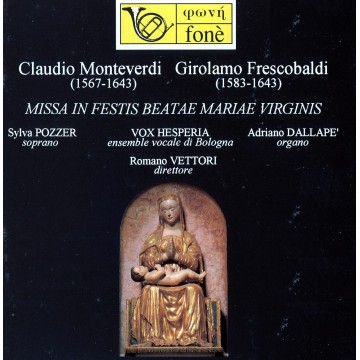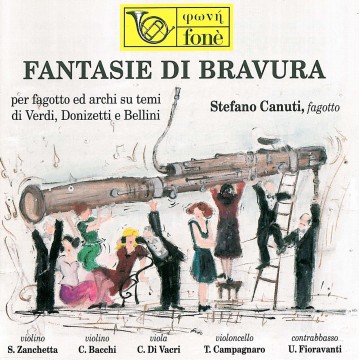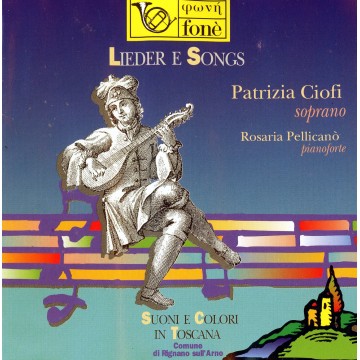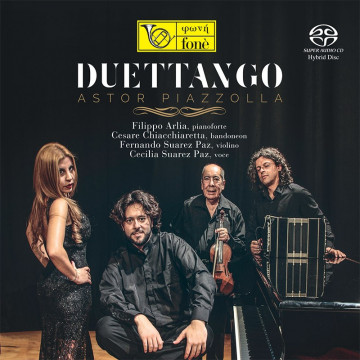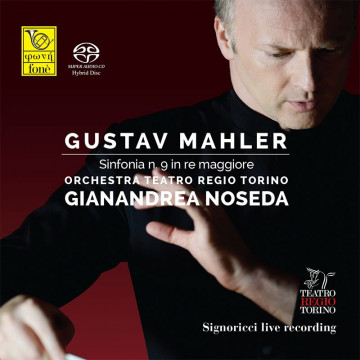NAPLES HOMAGE - SACRED POLYPHONY IN NAPLES BETWEEN XVI AND XVIII CENTURIES
The sacred music present in this recording exemplifies the singular vitality and quality of composers active in Naples from the mid-16th century to the beginning of the 18th century: it is the music of the Spanish vice-kingdom, of a great almost "colonial" culture, sometimes in harmony with, sometimes autonomous from that of the dominant power; culture bound by a thousand decisive connections, rather, to the other cultural phenomenologies of the Italian peninsula.
Alessandro Scarlatti (1660 - 1725)
Missa Pro Defunctis [25’40”]
1. Requiem introitus [05’06”]
2. Kyrie [01‘46”]
3. In memoria Aeterna graduale [02‘39”]
4. Domine JesuChristeoffertorium [06‘18”]
5. Sanctus [03‘13”]
6. Agnus dei [02‘52”]
7. Lux Aeternacommunio [03‘46”]
Pomponio Nenna (1550 - 1618)
8. In Monte Oliveti [03‘00”]
9. Caligaverunt [03‘20”]
Giovanni Maria Trabaci (ca. 1575 - 1647)
10. Cumjucunditate [03‘03”]
Gesualdo de Venosa (1560 - 1613)
11. Ave dulcissima Maria [03‘57”]
12. O vos omnes [03‘00”]
Giovanni Salvatore (an. Sec. XVII – ca. 1688)
13. Peccantem me quotidie [04‘10”]
Alessandro Scarlatti
14. Salve Regina [07‘28”]
Durata totale: [53’38”]
Naples is a city that, in relation to its productive capabilities, from culture to services, from consumer products to the most sophisticated technologies, lacks a communication culture capable of erasing its stereotypes, effectively penetrating the mechanisms of the mass media, and using them to promote a modern city projected into Europe. As Goethe said, it is like remaining "prisoners between God and Satan," torn between the pursuit of science, culture, art, quality production, and the perdition of mass-media worldliness. The non-ephemeral affirmation of a positive image of the city, proposed by significant social and cultural forces, finds in the CGIL a natural interlocutor. The Chamber of Labor, the Neapolitan workers, have always been on the front line, fighting to affirm the citizens' right to a livable city. For this reason, we created "CENTANNIPERILFUTURO" (One Hundred Years for the Future), animated by a search for vitality that is entirely Mediterranean. Despite the modesty of available resources, the project aims to stimulate the rediscovery of our roots and our cultures, reworking them for a project that looks to the future, reinstating this city's legitimate role as the agora of our country. This music production, the result of the collaboration and work of young but talented Neapolitan artists and researchers, which, among other things, launches a series, a gentle "Homage" from Fonè to this city, aims to continue an intense effort of knowledge and enhancement of the immense heritage attributable to the children of this city. It disseminates the highest artistic and cultural values in a new process aimed at the renewal of these lands, capable of self-generating through the best forces of this Naples: its youth, its history, and its Mediterranean and European culture. The question is: what does it mean for a union like the CGIL, in a place like Naples, to celebrate the hundred years of the Chamber of Labor by publishing two CDs of music by Neapolitan composers from the 1700s and 1800s, to be presented on the occasion of the commemoration of January 6, 1994? The question is: why would a publisher, known throughout much of the world as one of the most refined "men of music," produce these two recordings and risk such a clear political position in such a dark time? Well, let's start from the end. Fonè is a label and a style that I invented; it has produced about one hundred titles as well as countless concerts and events. Fonè has always fought with the strength of extreme quality against the overwhelming power of the multinational record companies, which only and always produce authors and performers who have composed and only ever perform the same music. Especially on this occasion, a union anniversary, therefore, a purely political one, the recovery of Naples's cultural wealth means opening ears and minds to a movement that wants to restore for everyone the image of Naples to that high humanistic level that, as anyone who works intellectually knows, it has always had, beyond preconceptions. When not only the political class but also a part of the Neapolitan business world ("...and partly Neapolitan," as Totò said) has obscured, polluted, and slandered the minds and beautiful places of an extraordinary city, then the CGIL's choice to re-evaluate delightful heritages becomes the response to the rot and the filth of shouted parties, greasy faces, slimy handshakes, and so many vain promises, all "passed off" as popular, when the only popular things are unemployment, delinquency, and that melancholic music that moves us. It is time to join the emotion for Naples with commitment and quality for special, unique products, because this city is unique; no longer consolation, but culture, the true culture of Naples. Thanks to this occasion, I wanted to start a Fonè series called "Napoli Homage." Music has a political significance: I offer all my passion so that this value pervades the sounds of Naples! Giulio Cesare Ricci, editor fonè

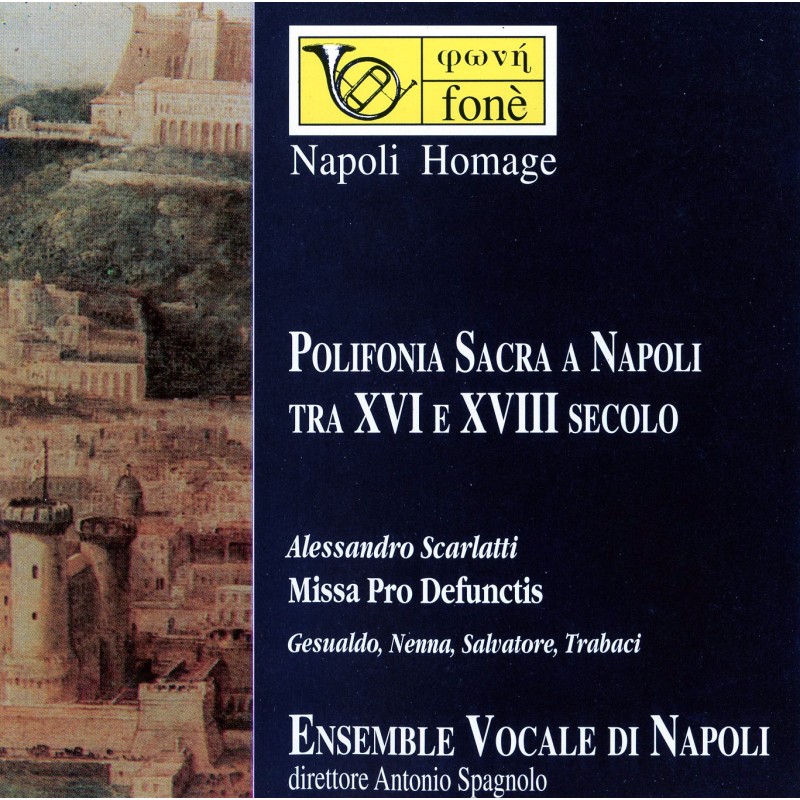

 Hd Tracks
Hd Tracks
 High Res Audio
High Res Audio
